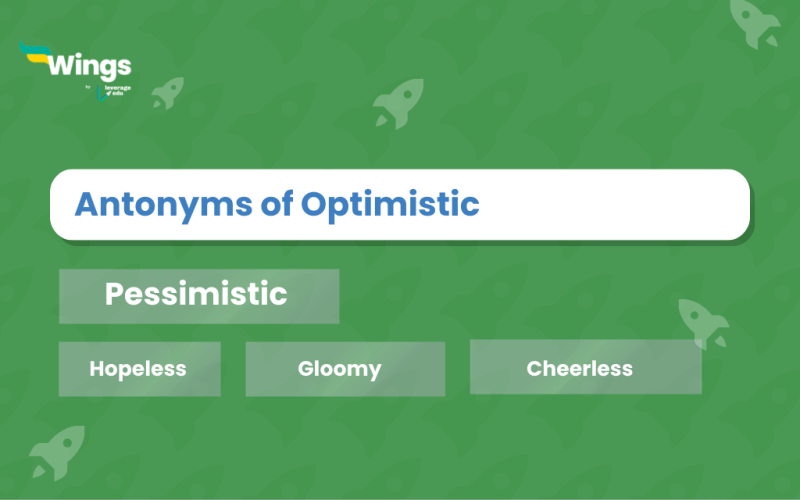“Optimistic” is a word that is regularly used in general day-to-day communication. We come across this word at least once a day. Not just this we also use its antonyms quite frequently.
The antonyms of “optimistic” are pessimistic, negative, ominous or gloomy. To make an impression and get well-versed in vocabulary one should know at least a few antonyms of general words like “optimistic.”
Meaning of Optimistic
“Optimistic” is a word that is used in everyday conversation. However, to make things simpler for you we will explain the meaning of this word in short.
The meaning of “optimistic” is someone who is extremely positive and hopeful about the future.
Also Read: Antonyms of Impromptu, with Meaning and Examples
8+ Antonyms of Optimistic
Mentioned below are some words that can be used as antonyms to the word “optimistic”:
- Pessimistic
- Negative
- Gloomy
- Depressing
- Hopeless
- Desperate
- Uncertain
- Dismal
- Cheerless
- Grim
Also Read: 110+ Antonyms
Usage with Examples
The antonym of the word “optimistic” is used to describe a person who is negative and hopeless. Someone who has lost all hope. Given below are some examples of how the antonyms of this word can be used in a sentence:
- His pessimistic approach to anything made him disliked by everyone.
- He is gloomy because he lost his bike today.
- His depressing personality gets on everyone’s nerves.
Also Read: Antonyms of Lazy, Meaning and Examples
Antonyms of Optimistic Quiz
Pick the closest word that is the opposite of “optimistic”:
- Cheerful
- Happy
- Gloomy
- Hopeful
Ans: Gloomy
| Antonyms of Busy | Antonyms of Consonance |
| Synonyms of Importance | Synonyms of Brave |
| Adjectives Starting With The Letter I | Adjectives Starting With The Letter B |
| Idioms for Learning | Idioms for Experience |
This was all about the antonym of “optimistic” meaning and examples. Hope you understood the concept where it’s used. For more such blogs, follow Leverage Edu.
 One app for all your study abroad needs
One app for all your study abroad needs














 45,000+ students realised their study abroad dream with us. Take the first step today.
45,000+ students realised their study abroad dream with us. Take the first step today.

